Disclaimer: We at Voyapon try to provide you with the most up-to-date information on Japan’s travel regulations using reputable news reports and information directly from the Ministry of Foreign Affairs website. However, the situation is constantly changing, and our article should not be used as legal advice. Please get in touch with your nearest embassy or immigration bureau for the most recent information about your situation.
The moment everyone was waiting for finally arrived: on October 11th, Japan officially dropped almost all the border restrictions for foreign travelers, practically returning to pre-pandemic status. It had been over two and a half years since the last time normal travel to Japan was allowed for foreign tourists, and by that point, Japan was the only country pending finally catching up with the rest of the developed world. This past summer, Japanese authorities started to accept tourist visa applications on June 10, but with a series of caveats, like obligatory group tour closed packages through designated travel agencies and tourist visa application requirements. In the end, this proved to be a policy failure since, unsurprisingly, the disappointingly low number of visitors proved the obvious: most tourists prefer to travel without restrictions. To improve the situation, since September 7, tourists were no longer forced to book group tours, but hotels and flights still had to be booked through travel agencies, and travelers were still required to apply for a tourist visa. In addition, the daily arrival cap was once again increased to 50,000.
But since October 11, the need for a tourist visa was scraped for all the countries that already had visa waiver programs with Japan before 2020, along with travel agency requirements and daily arrival caps. So what’s the current situation? Keep reading for details.

Visa procedures to enter Japan as of October 2022
Since March 2022, normal (pre-pandemic) visa applications for business trips or long-term stays were re-established either for work or study purposes. Short-term visitors from the list of 68 countries exempted from visas do not need special visa procedures starting October 11, 2022.
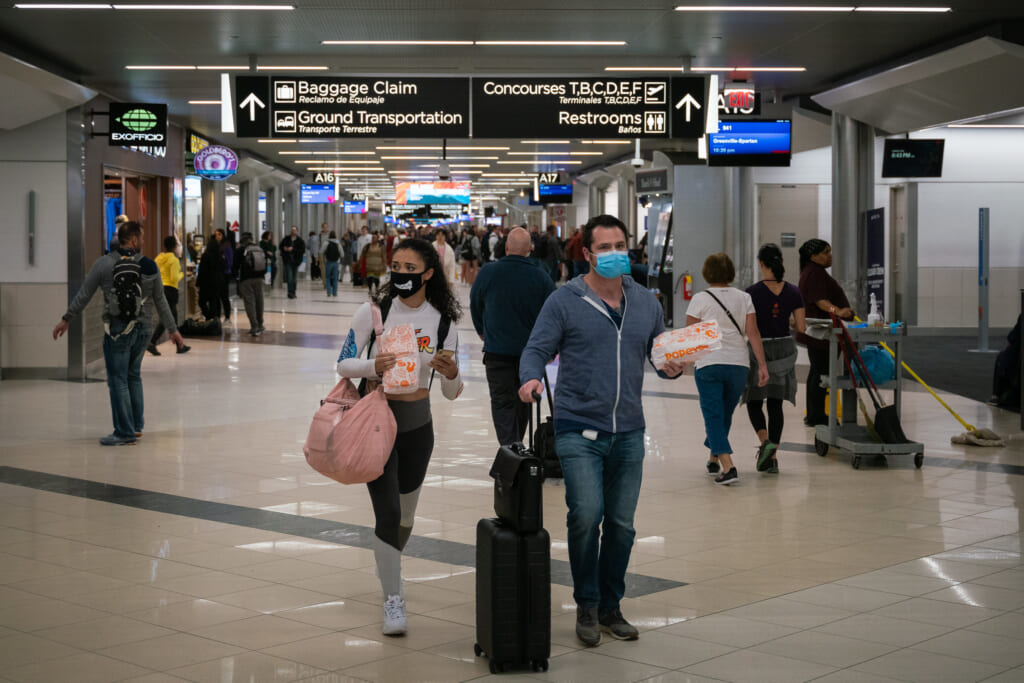
The “Business Track” or “Resident Track” available since July 2020 was suspended in January 2021. These two programs were open to some Asian countries in the summer of 2020, and on October 1, 2020, the worldwide citizen was incrementally permitted to enter Japan with the “Resident Track” program if they fulfilled the required conditions. However, as of January 14, 2021, these two tracks have been suspended until further notice.
Guidelines for short-term tourist visitors
While entry requirements are now practically the same as before the pandemic and international visitors are now free to explore without special rules for accommodation or transportation, once inside the country, tourists are highly encouraged to comply with safety measures like wearing masks while indoors (masks are not required outdoors if there’s enough physical distance from other people), constant sanitizing, and social distance.
In case of a positive test, tourists should seek medical treatment and abide by the health guidelines from each local government.
Requirements for short-term business travelers and new long-term residents
Starting March 1, 2022, all new arrivals, whether they’re short-term business travelers (under 90 days) or long-term residents holding a student or worker visa, must carry out the following steps when applying for a visa:
- Their guarantor companies should submit an online application through the new Entrants Returnees Follow-up System (ERFS). After submitting this application, a “Certificate for completion of registration” is issued. A copy of this certificate should then be submitted along with the corresponding documents when applying for a visa.
- Before departure, all cases must have a signed copy of the Written Pledge (English or Japanese version).
As for those foreign nationals with a Certificate of Eligibility (CoE) issued after January 1, 2020, their validity as of June 2022 is extended according to the following criteria as long as the sponsoring company/organization is still able to sponsor the visa:
- Certificates issued between January 1, 2020, and April 30, 2022: validity extended until October 31, 2022.
- Certificates issued between May 1, 2022, and July 31, 2022: valid for six months from the issue date.
- Certificates issued on or after August 1, 2022: valid for 3 months from the issue date.
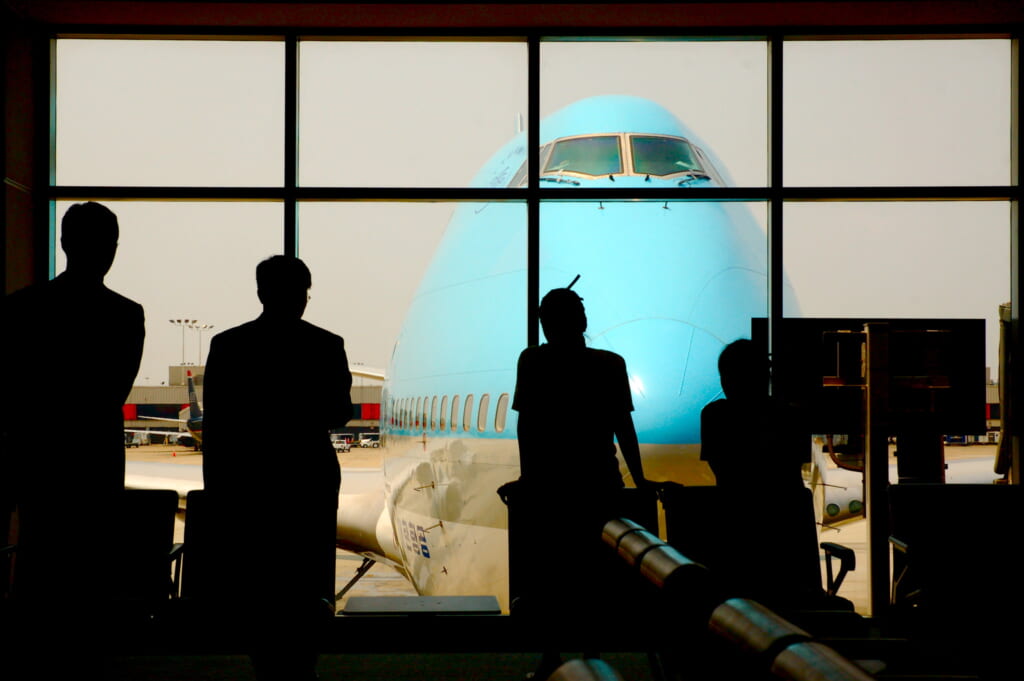
Exceptions to the rules
However, those who qualify for the “Spouse or Child of Japanese national” and “Spouse or Child of Permanent Resident” visa categories will be exempt from the written pledge. Instead, they must submit a copy of relevant family records (marriage certificate, birth certificate, etc.) along with the COE at the time of application. As for those who fall under the Japan-EU Economic Partnership Credentials (EPA) category, a Certificate of Eligibility is not required at this time. Lastly, those traveling to Japan for diplomatic or official purposes will not be subjected to this list of procedures.
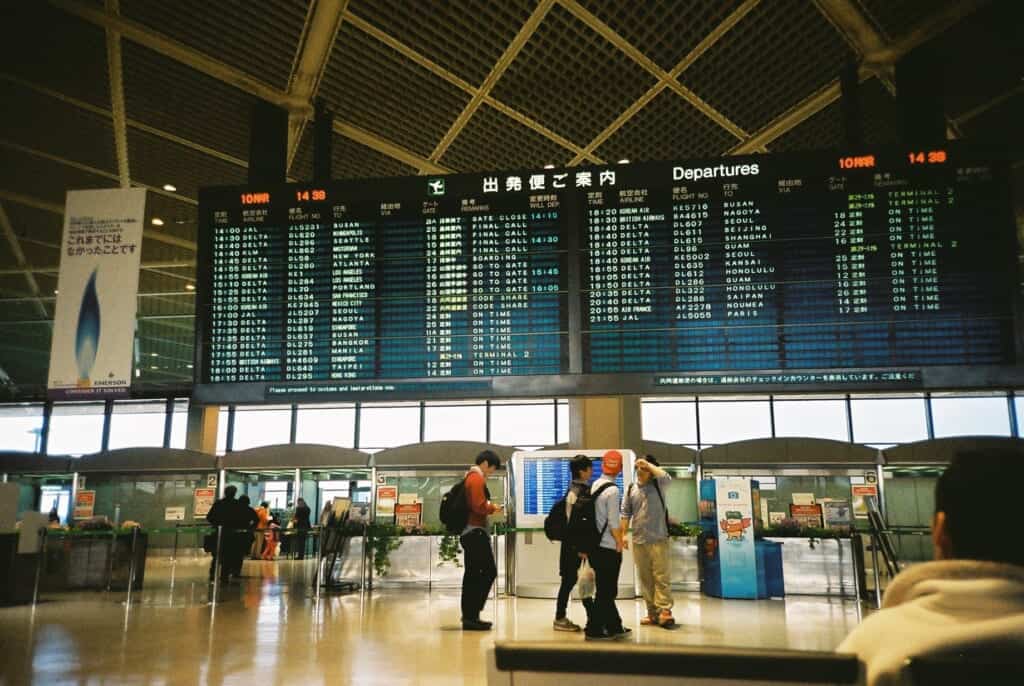
Actions to be taken before departure and upon arrival in Japan
Those travelers who have already received three vaccination doses must ensure their vaccination certificates are valid and up to date. Otherwise, a negative COVID-19 PCR test certificate must be presented within 72 hours before departure to Japan, or airlines may not allow boarding the flight. Along with the certificate expedited by the corresponding medical institution, a Japanese certificate following the government’s required guidelines must be presented upon landing.
PCR test on arrival is no longer required
PCR test on arrival is no longer required unless you display symptoms of possible COVID-19 infection. Other than that, incoming travelers only need to provide a valid certificate of receiving at least three doses of the vaccines listed by the World Health Organization or a certificate of negative COVID-19 test result within 72 hours before departure. Travelers must note that underage passengers will be treated depending on the status of the parent/guardian they’re traveling with: if the guardian is vaccinated, then the child will be exempted from PCR testing, but if the guardian is not vaccinated, then the child will also be required to provide a PCR certificate.
Current pandemic status in Japan
At the moment, there isn’t any emergency status in Japan. Despite record numbers of new infections, the number of patients with serious symptoms remains statistically insignificant. Therefore, the government has not imposed any further restrictions. Amid public discussions about whether to continue wearing masks or not, the Government has confirmed that masks are no longer needed while staying outdoors if there’s enough social distance. Furthermore, the government’s coronavirus panel of experts has been making calls to downgrade the coronavirus’s classification to an equivalent level to the seasonal flu, as the mild symptoms of the virus cannot justify the excessive burden still imposed on medical facilities.
Vaccination rate in Japan and implementation of Vaccine Passports
As of September 22, Japan has already administered over 321 million doses, reaching 81.5% of the population (104 million) with at least the first dose, 80.4% of the population (102.9 million) with the second, and 66.2% (83.3 million) with the third dose. Over 92% of the elderly population have completed their vaccination. A fourth dose started on May 25, originally for people over 60 years old or with underlying medical conditions, but the scope was gradually expanded to medical and elderly care workers in July and then to the general population in October. So far, over 40.6 million fourth doses have been administered. As for pediatric vaccinations for children between 5 and 11 years old, since its implementation in February, 1.6 and 1.5 million doses have been administered for the first and second dose, respectively, while infant inoculations for ages between 6 months and four years have started to be implemented since October 24.
Since the end of July 2021, local governments have started issuing vaccine certificates, also known as “vaccine passports,” to allow international travel for Japanese nationals. On December 20, a certificate app was launched, allowing users to have a digital version of their proof of vaccination on their smartphones. Currently, 46 countries recognize Japan’s vaccine certificates but entry conditions are on a country-by-country basis. Please check with the Ministry of Foreign Affairs Overseas Safety website for an updated list of countries and specific information for each country.
Visa-exempt travelers can travel to Japan from October 2022
The relaxation of borders from October 2022 onwards finally brings international travel to Japan almost the way it was before pandemic times, so hopefully, it’s a matter of time until the situation becomes fully normalized. Until then, the Ministry of Foreign Affairs is continually updating entry procedures into Japan, which depends on the global COVID and within Japan’s borders.
Original article published on 04/10/2020. Last update on 11/14/2022

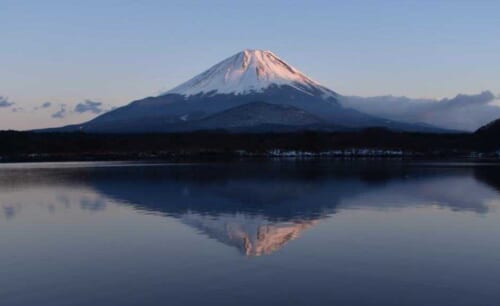

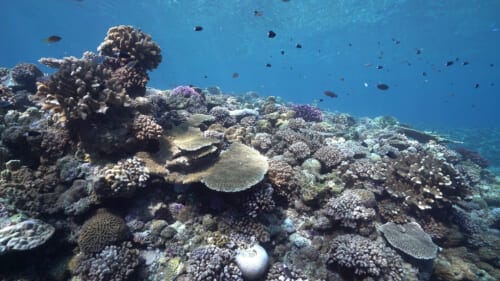
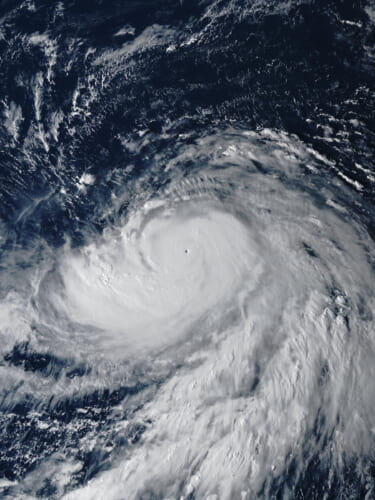
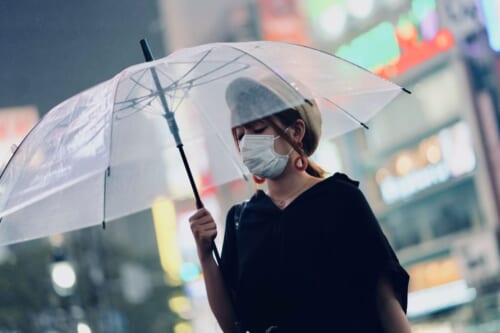
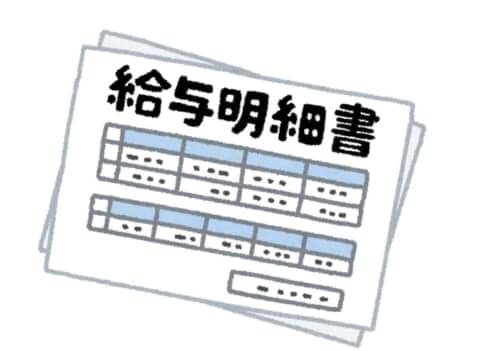



Hello, just wanted to ask where you got the info that the Working Holiday Visa is excluded from because I could’nt find anything about that.
Thank you
Hi David,
Since March of this year, the validity of all single and multi-entry visas (Working Holiday Visa is a single-entry visa) was suspended to prevent the spread of COVID-19, which you can find here: https://www.mofa.go.jp/ca/fna/page6e_000199.html
In August, new border entry measures opened up to foreign nationals with a valid re-entry permit (https://www.mofa.go.jp/ca/fna/page4e_001074.html), then again just recently for those travelling for business or those seeking a short or long term residence status: (https://www.mofa.go.jp/ca/fna/page22e_000921.html)
The short of it is: There is no mention of when tourists and working holiday visa holders will be able to apply/reapply for an entry visa within these new border-entry guidelines, so we have to assume that the rules for single/multi-entry visa haven’t changed since earlier this year.
As vague as that may sound, these new border measures seem to be changing by the minute, so the best we can do is watch for any new announcements made regarding these new border measures.
You can keep an eye on new announcements on the Ministry of Foreign Affairs page here: https://www.mofa.go.jp/j_info/visit/visa/index.html.
Hope that is helpful!
Hello, thank you for the information!
Is it wise to purchase the airplane tickets now for April 2021 ou should we wait?
Thank you
Cynthia
Hi Cynthia, thank you for your question!
As always, we try to give you our best advice based on the information we have at the moment. In regards to travel in 2021, Japan’s travel restrictions are continually changing due to the evolving global status of Covid. As you may already know, a State of Emergency issued in January to a handful of prefectures has been extended, restricting even travel within the country. It’s likely that travel to and from the country will be restricted until further notice, so it may be wise to postpone any travel plans (especially in April, as it’s less than two months away) until the travel restrictions have been lifted.
Keep an eye out for updates in this article, and in particular, to information regarding travel guidelines for those on a short-term “travel” visa. Let us know if we’ve answered your question.
Thank you!
It said tourist visa second. I live in the United States which Is visa exempt for japan. I have my passport and necessary documents. Would I be counted as the second group or would I need to apply for a tourist visa? I plan to stay to for about 85 days in japan
Hi Maddy, thanks for your question. Under normal circumstances, you’d be automatically issued a tourist visa upon arrival to Japan since you are from a country that is visa-exempt (meaning you don’t need to apply for a visa at your embassy before you arrive in Japan). The current situation hasn’t changed that, so yes, you’d be a part of the second group. However, please note that Japan hasn’t lifted their travel restrictions on short-term visitors yet, and the Ministry of Foreign Affairs is continually updating their travel restrictions.
Let us know if we’ve answered your question. Thanks!
Hi,
Iam from India and have COE issued on Jan.
Please let me know whether there is possibilities to get dependent visa by April.
Thank you
Hi Suganya,
Our best advice is to reach out to your embassy and ask them directly. Since Japan’s travel restrictions vary from country to country, and guidelines are continually changing, it’s best to get the most up-to-date information pertaining to your own country directly from them, or online at your country’s embassy website.
I’m from Kuwait and my wife is Japanese tried to come to Osaka with my wife and son but the embassy refused to give me and son Visa to enter even under the “special circumstances”
Hi Hussain,
We’re sorry to hear about your difficulties!
You’re right in that a spouse or child of a Japanese national is considered one of the four conditions covered under the Special Exceptional Circumstances outlined by the Ministry of Justice (http://www.moj.go.jp/isa/content/001338898.pdf) that are permitted a landing permit. However, it appears that the Ministry of Foreign Affairs is requesting that a spouse or child of a Japanese national are required to obtain a Certificate of Eligibility or full copy of the family register/certificate of residence/residence card in order to qualify for this exception. (https://www.mofa.go.jp/ca/fna/page22e_000921.html). They’re also reserving the right to deny landing dependent on each case’s unique situation, so unless they explain the reasoning for your denial in Osaka, this can be an especially frustrating time for individuals like yourself and your son. Those “unique” situations are listed on the Ministry of Justice pdf we linked above.
We hope you and your son are safe despite your unfortunate situation and hope it’s resolved sooner than later. If you’re able, please keep us afloat on your case!
What about individuals who have been fully vaccinated? Any exceptions for them coming to Japan?
Hi Stuart,
At the moment, exceptions only apply for those with proof of residency, is a permanent resident or a Japanese national, and is a spouse or children of a Japanese national/ permanent resident (with some stipulations for all mentioned). Persons who are fully vaccinated are not exempt and still need to qualify for one of the above. Usually, anyone (including those who have been vaccinated) would have to apply for a visa, and currently, many of those (eg. working holiday, long-term that require a COE, etc.) visa applications are suspended until further notice.
Let us know if we’ve answered your question!
Hello, I am from Myanmar and I have already got COE in March 2021 and planned to study in Saga Prefecture.I know we don’t know exactly when Japan reopen for applications until further information. But when do you think Japan could reopen for visa applications?
Thank you.
Hi Thuzar, thank you for your question.
That is entirely dependent on when the Ministry of Foreign Affairs issues a statement regarding travel restrictions, including updates on visa applications. Unfortunately, we don’t have the answer for you but are continually gauging the situation and hope to have updates in the future. Watch for updates on this page or better yet, check the Ministry of Foreign Affairs website for the latest in when visa applications will start up again.
What do you think the odds are that Japan will open up travel for December 2021 to tourist ?
Hi Chloe,
It’s difficult to judge when Japan will open up for travel again. The projected timeline for Japan’s vaccination programme aims to have all residents have access to the vaccine by September, however, this is subject to change. Japan’s travel restrictions will also depend on the global status of the virus. With various factors affecting travel restrictions in Japan, we can only wait patiently and watch for any incoming news from the Ministry of Foreign Affairs before we can update you on travel for tourists.
Keep watch on this page for future updates and thank you for your comment!
I am from Nepal, presently working in Qatar. But my Girlfriend is Japanese. We had plans of getting married this year 2021 and settle in Japan but, we are facing problems as the our lawyer in Japan says I can’t get Tourist/Visit Visa at present. Is there any way/ condition I can get to her? Please help we have waited so many years for this and now finally we both are ready, things are getting complicated.
Hi Elvis,
We’re sorry to hear about your dilemma! Your lawyer is right in that there are currently no tourist/visitor visa applications being processed for entry into Japan. Keep watch on the Ministry of Foreign Affairs website for future updates on travel restrictions and when short-term visas are processed again.
Hi. I couldn’t leave a comment but I wanted to know something. I am planning a trip in June 2022 to see my military man ( United States Marine) in Okinawa, Japan. We aren’t married yet. My question is if I have a negative test, do I still have to be in quarantine for 14 days. One minute I see I have to be quarantine in Tokyo for 14 days. The next I see the place of where I am going to be, which is the island. I wanted to know if they still will let me on the plane to go to the island if my test is negative, and just check up on me within the 14 days. My trip will be for 2 weeks. Please let me know! Thank you!
Hi Ashley, thanks for your comment. Currently, short-term visitors won’t be able to enter Japan based on the existing travel restrictions. However, since you’ll be traveling next year, these restrictions will likely change to reflect the global COVID status and will depend entirely on that. Keep an eye on updated here or check the Ministry of Foreign Affairs for updates on travel to Japan.
I want to know if Japan started issues working visas
Hi Hagie,
Almost all working visas have been suspended until further notice. If you were able to obtain a CoE (Certificate of Eligibility) before the suspension, your visa may still be valid, however, it is best to confirm with your Embassy for further advice if this is the case. Please check for updates on this article or the Ministry of Foreign Affairs website for updates on visas in Japan.
hi, Sakurai-San.
I am Michael from Indonesia. Do you have any information about Tokutei Ginou workers from South East Asia?
I am interested to work as a caretaker (kaigou) using tokutei ginou visa and until today there is no recruitment process from Japanese company.
Do you have any information on when Japan will open border for tokutei ginou workers?
I believe Japan do need a lot of caretaker workers.
Thank you.
Hi Michael, a Tokutei Ginou worker falls under the Specified Skilled Worker visa, and unfortunately, those categories are still suspended until further notice. Please watch for further updates here or check the Ministry of Foreign Affairs for updates visa applications in Japan.
Hi am Anthony from Nigeria,I got a japenesse work visa,can I be allowed to enter Japan now?
Hi Anthony,
This depends on whether you have a valid resident card along with your work visa. Officially, only Japanese and foreign residents are allowed travel into Japan, though this may vary case by case. We recommend you contact your embassy directly for the most up-to-date information regarding your options for travel to Japan.
I have checked everywhere and have been told this is not true. Do you have an official link to this 3 day quarantine rule?
Quarantine rules will vary according vaccination status
Starting November 8th, all returning passengers, both nationals and foreign residents, will be able to get a shorter quarantine of 3 days if they’re able to provide a certificate proving that they’re fully vaccinated against COVID-19. But this only applies to vaccines currently approved by the Japanese Government: Pfizer, Moderna, or AstraZeneca.
Hi Karim, thanks for your question. Here is a link to the Ministry of Foreign Affairs stating the three-day quarantine rule. (https://www.mofa.go.jp/ca/fna/page4e_001053.html#section2) Please note that, in light of the new COVID-variant, Omicron, this may be subject to change.
Hello!
I know this is an older post, but I’ve been trying to get a concrete answer as to whether Working holiday Visas are able to enter Japan again? Provided there is a company th hat is willing to sponsor through ERFS?
THANK YOU!
Hi Jimmy, thank you for your question. At the moment, Working Holiday Visas fall under the “short-term visa” category (non-business related), which has been suspended since March 2020. The newest updates on visa and travel restrictions have not updated this suspension.
Given how strict Japan’s entry policies were throughout the pandemic, it’s exciting to see changes that allow for a more seamless travel experience while still maintaining health precautions.
One of the biggest takeaways is the impact on tourists and business travelers. Japan has always been a bucket-list destination for many, and with its reopening, visitors can once again experience its rich culture, stunning landscapes, and world-class cuisine. However, the article also highlights travelers’ concerns, particularly regarding entry requirements, potential restrictions, and the overall experience in a post-pandemic world.
The discussion on safety measures and government policies was particularly helpful. It’s reassuring to know that Japan is taking steps to balance tourism and public health, ensuring that visitors and locals alike feel comfortable and safe.
Overall, this article does a great job of breaking down the latest travel updates in a way that’s informative and practical. Anyone planning a trip to Japan should definitely give it a read to stay prepared and informed!”